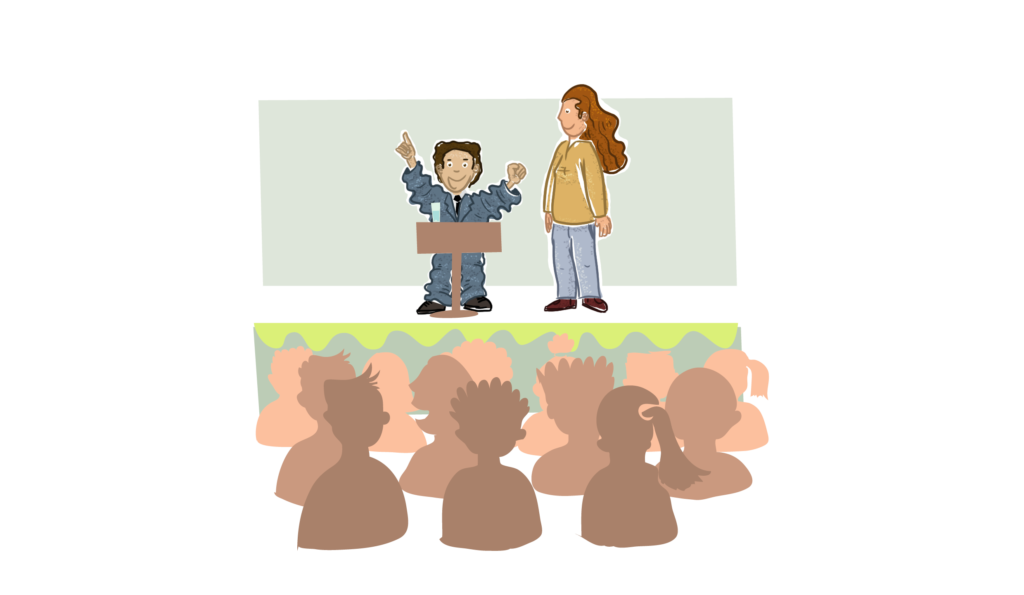Consider the stakeholders
Living Democracy » Principals » PARTICIPATION » Awareness » Consider the stakeholdersIf you intend to put participatory democracy into practice, it is necessary to anticipate the involvement of potential groups of people and their specific roles. Moreover, if laws are in place in your country that grant stakeholders specific rights in decision-making in school, or institutions like a student council or a joint school conference (with teachers, parents and students) are legally defined, you must take these into account and make the best possible use of them.
Students…
…are the primary target group whose job is to learn and act democratically in school. They can be in-volved in the teaching and learning process during the lessons, in affairs concerning the whole class (rules, class trips, social life etc…), as well as in whole school issues, such as infrastructure, school events, or school rules. Moreover, students are a valuable resource for all attempts to reform and improve classroom instruction, or the school as a whole. Additionally, they can be taught democracy in various lessons based on the teaching materials from this website, Living and Learning Democracy.
Parents…
…are responsible for their children. As such, they have a major role in the education of their children. There is no successful education in school without parental support and cooperation. That is why the involvement of parents is essential. Parents can be involved in many different ways. Epstein suggests forms of parental involvement, such as showing parents what they can do at home to support their students’ progress in school, or regularly informing the parents about their children and the school program. Parents may also volunteer in school, e.g. in school events or providing other assistance. Finally, parents can participate in decision-making processes in school.
Teachers…
…are the main educators for the students in school. Their teaching strongly influences how and what students (can) learn. Teachers know the strengths, problems and personal characteristics of their students very well. Teachers are the most important partners for principals. A sound and close cooperation between principal and teachers is essential in providing good teaching and learning-conditions. Regular meetings between principals and teachers (staff meetings) are standard at most schools. Here, you can discuss new regulations by public authorities openly and identify their implications for your school, understand the teachers’ attitudes and experiences, foster initiatives, delegate responsibilities, as well as involve your teaching staff in nearly every decision to be made in school.
Community…
…is the social context in which your school is embedded. It is comprised of ordinary citizens, public and private associations, enterprises and companies, other public educational institutions, public health and safety institutions (hospitals, police etc.) as well as policy makers. Cooperating closely with these actors enables schools to offer extended services that serve the students’ and parents’ needs. By involving community stakeholders in school decision-making, it is also possible to adapt the school’s programs to the needs of the community. For instance, if the police reports increased vandalism, or doctors are concerned about increasing video-game addiction in the community, the schools may integrate the discussion of such issues into their program or curriculum.
Public authorities…
…supervise the implementation of laws, rules and regulations that are binding for schools. They monitor the schools through inspections, evaluation and observation of the school’s performance. In general, it is necessary to ensure that all decisions taken by a school comply with current laws and regulations. Keep representatives of public authorities informed about your plans and, if possible, try to involve them in your decision-making process at an early stage. Confidence-building will make them more likely to support your ideas, visions and projects.


